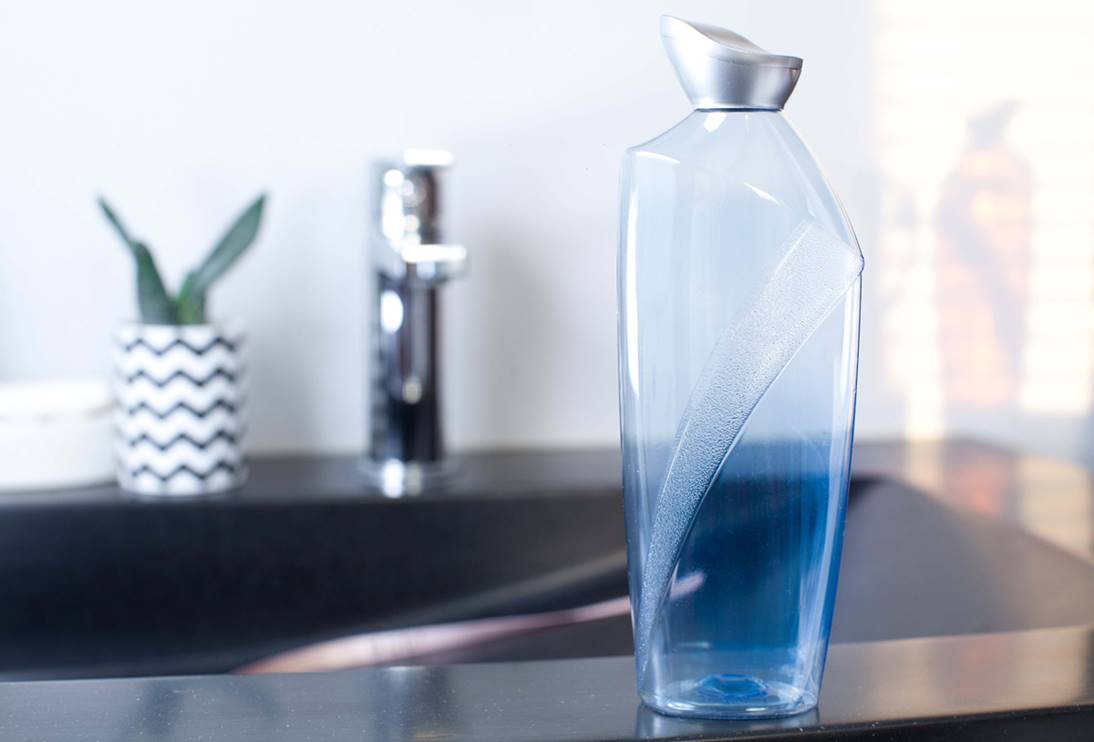
The use of PET is steadily gaining market share traditionally dominated by HDPE (High Density Polyethylene) and PP (Polypropylene). Sidel has introduced new SteadyEDGE base technology which offers innovative and attractive PET package design variants and also ensures stable and cost-efficient production. This technology is designed to meet the challenge of producing flat, oval and rectangular containers in PET, which all require a specific production process that delivers the optimum material distribution of PET to achieve a top quality package. It makes possible to achieve premium-quality containers in PET, with sharper edges which have a radius as little as only 1mm, compared to a previous minimum of 2.5mm, These sharper edges actually increase design freedom and facilitate the production of more elegant containers with bases which are less curved. They also open up particular marketing opportunities for containers with complex shapes and large labelling surfaces. It also ensures maximum container quality by accurate processing, optionally reinforced by a monitoring system of visual control of base movement on individual blowing stations.
The sharper edges possible on the package are used to effectively flatten and increase the 'standing ring' area of the base. In this way the package is much more stable, preventing unwanted rocking and reducing the possibility of containers being knocked over. The application of this design can enhance the package's stability and this is beneficial on the supermarket shelf and also in the home, as well as improving reliability on the production line. As packages are far less likely to fall while they are being conveyed between various machines, this results in fewer costly stoppages and greatly improved uptime.
This innovative packaging solution optimises productivity and low total cost of ownership (TCO) while product quality and reliability are maintained to a high standard. Benefits include lightweighting possibilities of up to 10% through the improved material stretch on the base. A reduction in blowing pressure decreases energy consumption by up to 20% during production when limitation is linked to base design. It has been achieving higher output rates which are also up to 10% faster - from 1,800 bottles per hour per mould for flat containers with a standard base to 2,000 bottles per hour per mould with this design.
This specific sharp base design is achieved using the new Sidel patented base mould system: the Base OverStroke System (BOSS). BOSS is a piston activated in the blowing phase to stroke the base. This mechanical element allows for the raising and lowering of the base during the bottle-forming process independent of the opening and closing of the two half-shells of the mould.
BOSS provides flexible and versatile production with the option to implement quick mould changeovers and ensure maximum production uptime. A BOSS-to-BOSS changeover can be performed in just 3 minutes; BOSS-to-other can be performed in 11 minutes. It is easy to implement and to retrofit, Sidel's new BOSS solution is fully compatible with Sidel Universal blowing machines







